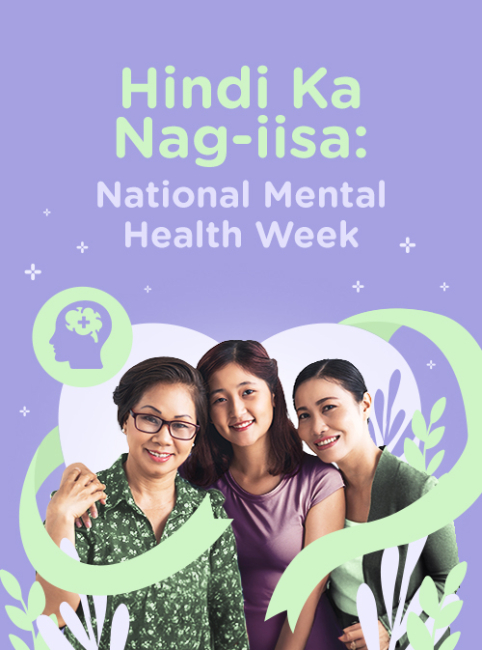Heartbreak is not a recognized clinical diagnosis. But when it persists, it might lead to serious mental health concerns that will eventually harm your overall health and life satisfaction. How do you move on from heartbreak?

In this article, we’ll list down the ways you can #StandStrong and heal from a broken heart.
Grieve, It’s Okay
After your heart breaks, it’s tempting to just forget the pain and have fun. Maybe take a vacation, meet new people, or find an interesting hobby to get busy with.
While there’s nothing wrong with doing these things, experts do not recommend bottling your grief and hiding it behind “happy” activities.
What they recommend is to let grief run its course. Whatever your source of heartbreak is, you might experience denial, anger, bargaining, depression, and finally, acceptance¹.
How you go through them varies. You might skip one stage, experience one for longer, or deal with depression before anger. The important thing is to grieve.
Healthy grieving is crucial because it “frees up” the energy you had for the person, thing, or situation lost. In doing so, you can re-invest the energy into something or someone else².
Despite the End, It’s Not a Failure
The steps on how to move on from a heartbreak often become more challenging because many people see the end as a “failure.”
When a relationship ends, for instance, one might ask questions like, “What could I have done differently or why wasn’t I enough?”
Trying to find faults isn’t helpful. What you can do instead is to take the heartbreak as an opportunity for personal growth³.
Take Care of Yourself
How to move on from a heartbreak must include taking care of yourself.
You see, when you feel like your heart is literally breaking, it might be difficult to function. Even the most routine of activities, like eating and bathing, seem like chores. At times, you might even feel physical pain. After all, emotional pain has the same pathways as physical pain⁴.
No matter how tired and unmotivated you feel, continue to eat healthily, cook meals, exercise for at least 30 minutes daily, and find daily activities that give you joy. These are not just healthy; they can also be outlets to manage your stress, anxiety, lethargy, and sadness.
Distance Yourself From What You Miss
Do you tend to look back in the past, remember the good times, and wonder about things that “could have been?”
If you do, and you become overwhelmed with emotions, maybe it’s time to distance yourself from the person or situation you’re missing.
When it’s getting more difficult not to visit their social media account, perhaps it’s best that you block them. Do you still have your playlist? Consider deleting it, so you don’t have to reminisce when the music plays.
Setting distance isn’t running away. It could be a crucial step on how to move on from a heartbreak. Come to think of it, how would you move forward if you constantly go back to the past⁵?
Practice Self-Love
You cannot give what you do not have. Hence, if you want to enjoy traveling, take on hobbies, or be productive, you must have the energy and disposition to do so. If you want to help and love others, you must also help and love yourself.
So, practice self-love. Be gentle with yourself and certainly avoid comparing your journey with others.
How to move on from heartbreak? Focus on yourself.
Seek Support From Loved Ones
Healing from a heartbreak often means needing the support of others. Express your needs to your family and friends. Whatever it is you need: time alone, someone to talk to, a travel buddy, let them know.
And when the above tips on how to move on from a heartbreak don’t work, don’t hesitate to seek professional help. A counselor or therapist is most equipped on how to move on from the negative effects of a broken heart.
Key Takeaways
How to move on from heartbreak? Experts say you need healthy grieving, see things as opportunities for personal growth, take care of yourself, distance yourself from the object of loss, and seek support from family and friends.
Learn more about Healthy Mind here.



















